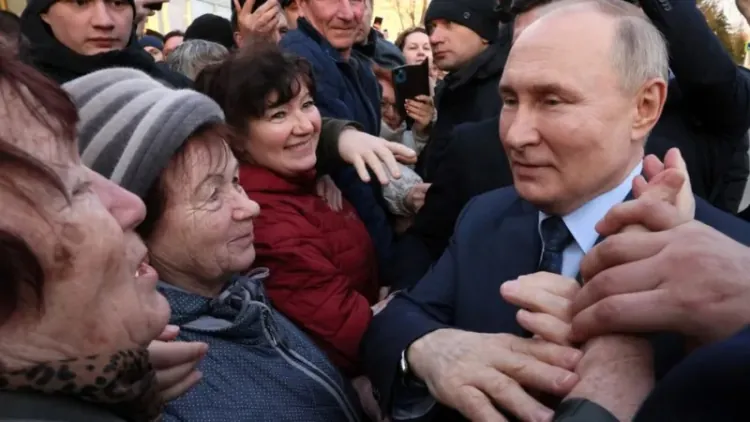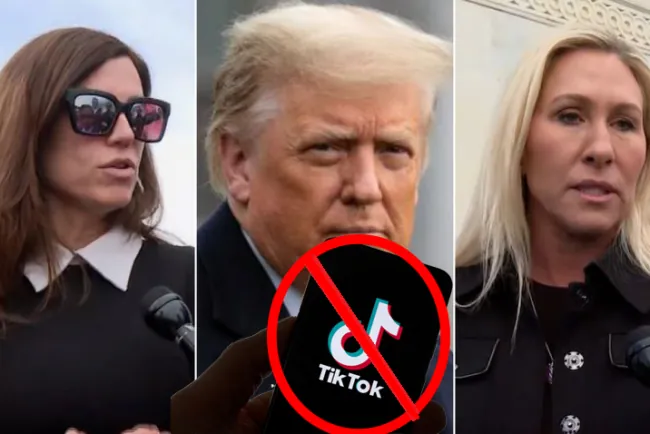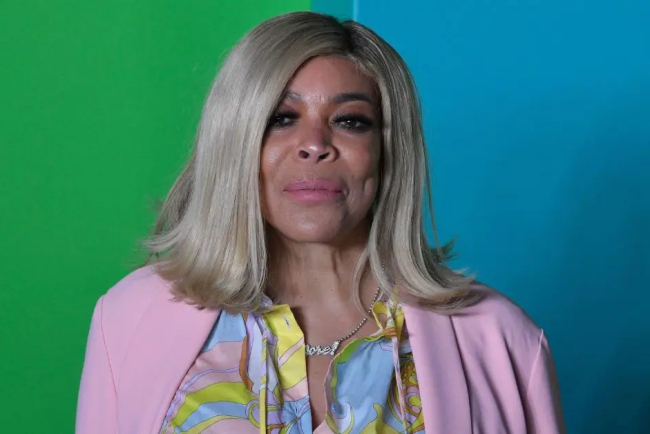Russia's Election: Predicted Victory in Putin's Stage-Managed Show
Experience an in-depth look at Russia's election, where Putin's victory seems preordained in a tightly controlled political spectacle.

Outline
-
Introduction
- Brief overview of the current political climate in Russia.
- Mention of the upcoming presidential election and its perceived outcome.
-
The Silent Prelude to Election Day
- Observations from Borovsk: Lack of visible election campaigning.
- The stark contrast between the silent election atmosphere and the vibrant street art scene.
-
Vladimir Ovchinnikov: The Artist as a Dissenter
- Introduction to Vladimir Ovchinnikov, his art, and his political statements.
- Detailed description of selected artworks and their meanings.
- The repercussions faced by Ovchinnikov for his politically charged art.
-
The Unchallenged Road to a Fifth Term
- The political landscape ensuring Putin's victory.
- The role of state media in shaping public perception.
- The absence of significant opposition in the race.
-
The Echoes of the Past in Present Politics
- How historical events and figures influence today's political climate.
- The impact of political repression on freedom of expression and dissent.
-
Public Sentiment in Borovsk: Between Apathy and Support
- Accounts of local residents’ views on the election, war, and Putin.
- The divide in public opinion and its underlying reasons.
-
The Future of Russia: Predictions and Possibilities
- Speculations on the future political direction of Russia.
- The potential for change or continued stagnation.
-
Conclusion
- Reflections on the significance of the election for Russia and the world.
- The role of art and public sentiment in challenging or maintaining the status quo.
-
FAQs
- How does the election process work in Russia?
- What makes this election significant for Putin and Russia?
- How do artists like Ovchinnikov influence public opinion?
-
Further Resources
- For more insights into Russia's political scene and art as a form of resistance, visit Kiksee Magazine.
Russia Election: A Glimpse into the Stage-Managed Victory
Introduction
In the lead-up to Russia's presidential election, a peculiar silence hangs over Borovsk, a town just 60 miles from Moscow. Unlike typical electoral fervor, this quietness hints at a stage-managed process destined to secure Vladimir Putin a fifth term. Amidst this, the town's vibrant street art, particularly by Vladimir Ovchinnikov, stands in stark contrast, echoing dissent in a controlled political landscape.
The Silent Prelude to Election Day
Borovsk's streets, devoid of the usual election campaigning paraphernalia, reflect a broader narrative of a preordained election outcome. This absence of political engagement belies the undercurrents of discontent and the resilience of street art as a form of protest and expression.
Vladimir Ovchinnikov: The Artist as a Dissenter
Vladimir Ovchinnikov's art offers a window into the soul of Borovsk, with murals that navigate the town's history and its contemporary stories. His work, ranging from historical recountings to poignant critiques of current affairs, like the depiction of Russia's war in Ukraine through unsettling imagery, reveals the tensions between artistic freedom and political repression.
The Unchallenged Road to a Fifth Term
The election landscape is meticulously curated to favor Putin, with state-controlled media painting a glorified image of Russia under his leadership. Opposition voices, like Alexei Navalny's, are systematically silenced, ensuring an uncompetitive race.
The Echoes of the Past in Present Politics
The resonance of Russia's historical episodes of political repression is evident in today's political climate. Ovchinnikov's art, reflecting on past and present tyrannies, underscores the cyclical nature of power and repression in Russia.
Public Sentiment in Borovsk: Between Apathy and Support
The citizens of Borovsk encapsulate the national sentiment: a mixture of resignation to the political status quo and genuine support for Putin. This dichotomy reflects the complex interplay of history, propaganda, and personal convictions shaping public opinion.
The Future of Russia: Predictions and Possibilities
Amidst predictions of increased repression and a tilt towards authoritarianism, questions about Russia's political future and the potential for change loom large. The role of dissenting voices and the resilience of the public's spirit remain crucial factors.
Conclusion
As Russia stands at the crossroads of continuing its path under Putin or exploring new political avenues, the election serves as a critical reflection point for both the nation and the international community. The vibrancy of street art and the courage of dissenters like Ovchinnikov remind us of the enduring power of expression in challenging the status quo.
FAQs
-
How does the election process work in Russia?
- Russia's presidential election process is formally democratic but heavily influenced by state control and media manipulation, leading to a lack of genuine competition.
-
What makes this election significant for Putin and Russia?
- Securing a fifth term would solidify Putin's grip on power, impacting Russia's domestic and foreign policies.
-
How do artists like Ovchinnikov influence public opinion?
- Artists like Ovchinnikov play a critical role in provoking thought, challenging official narratives, and offering alternative perspectives on political and social issues.
Further Resources
Explore more about Russia's political dynamics and the intersection of art and politics at Kiksee Magazine.
What's Your Reaction?






















